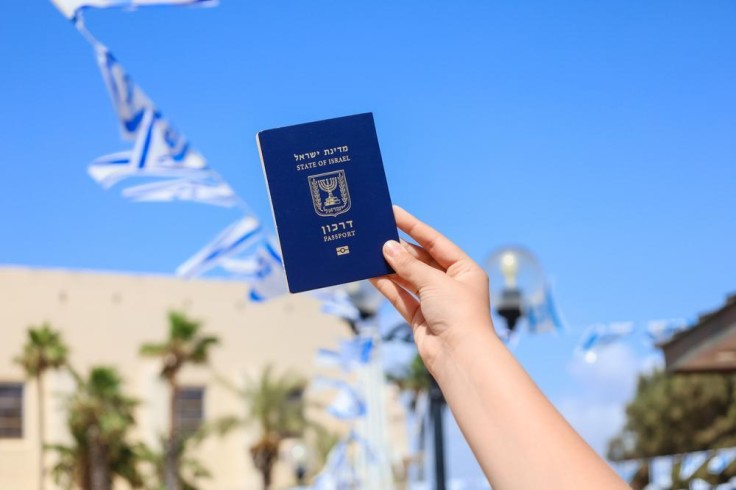
If you're considering making the significant move of aliyah to Israel, or if you want to call someone up for an Aliyah to Israel - a family member, friend, or adult offspring - you may find yourself awash in questions and uncertainties. Among the most critical concerns is what paperwork you'll need to make it all happen.
In this article, Advocate Joshua Pex, an Israeli immigration attorney from our Israeli law firm, sheds light on this pivotal aspect. Read on to understand the specific documents required by Israel's Ministry of Interior, or Misrad HaPanim, to successfully submit an aliyah application under Israel's 1950 Law of Return.
What Does the Law of Return Actually Say About Eligibility?
The Law of Return serves as the cornerstone for Jewish immigration to Israel. Its opening article straightforwardly states that "any Jew is eligible to make aliyah to Israel," thereby acquiring Israeli citizenship. A further amendment to the law, often colloquially known as the "grandson" clause, provides the families of Jews, up to the third generation, the right to immigrate to Israel.
In other words, the spouses of Jews, the children of Jews (and their spouses), and the grandchildren of Jews (and their spouses and minor children) can make Aliyah to Israel, even if they are not Jewish themselves.
However, the law remains notably silent on the methodology to establish one's Jewish heritage. This is where the Israeli Ministry of Interior procedures come into play, specifying the documents necessary to substantiate your claim for aliyah.
How Do You Call Someone Up For an Aliyah When Documentation is Needed?
The Ministry of Interior's protocols may not present a definitive list, but they do outline the general types of documents needed. You can think of these as falling into two broad categories: religious documentation that corroborates the applicant's Jewish identity and civil documentation that verifies the applicant's personal details.
What Religious Documents Are Acceptable?
The Ministry is flexible when it comes to proving your religious identity. A wide array of materials are deemed acceptable, including but not limited to Jewish marriage certificates (a "ketubah" in Hebrew), bar or bat mitzvah certificates, documentation of a family burial plot in a Jewish cemetery, synagogue membership forms, and membership in Jewish organizations. Additionally, the Ministry of Interior clerks expect applicants to submit a formal letter from a rabbi or another Jewish institution supporting the aliyah request.
So, how do you call someone up for an aliyah? By ensuring they have the religious and personal documentation needed for substantiation.
What about conversion documents?
Someone who converted to Judaism is in fact considered a Jew entitled to Aliyah from the perspective of the Israeli Ministry of Interior. However, Israel does not wish to provide citizenship for any and every person who declares themselves Jewish, particularly as converts are often suspected of converting for the purpose of obtaining Israeli citizenship rather than out of a genuine desire to become a Jew.
In order to apply for Aliyah after conversion, the applicant must provide documents from a recognized Jewish community, confirming that they have been a member of said community for at least a year before and at least 9 months after conversion and have spent at least 300 hours studying Judaic laws and traditions.
Furthermore, the convert must provide a letter explaining the reasons for their conversion and the experience they underwent, as well as documents from the community leaders, detailing the convert's participation in the community and embrace of their new Jewish identity.
Which Civil Documents Are Mandatory?
On the civil documentation side, candidates for aliyah need to provide their passports and birth certificates as a starting point. These serve to affirm the applicant's identity and linkage to their Jewish family lineage. If available, birth certificates of parents are also beneficial. Should you be married with children, be prepared to submit your marriage certificate and your children's birth certificates.
Is There Any Other Documentation You Need to Worry About?
Another indispensable piece of documentation is the "criminal record certificate" - or rather the lack a criminal records certificate. Essentially, this is a "police clearance" certificate (a "PCC"), often obtained from national agencies such as the FBI, verifying that you don't have a criminal background and thereby that you do not pose a threat to Israeli society.
If you do in fact have a criminal record, you best hope it was for a minor offense that took place many years ago. While no law states that those with a criminal past are automatically barred from immigrating to Israel, the Ministry of Interior officials have a wide authority to judge whether an applicant "poses a danger to the Israeli public".
Our law office has a great deal of experience appealing the denial of Aliyah to those with a criminal record, and the best course of action is to demonstrate many years free of criminal activity after the conviction release from prison - better than relying on explanations and recommendations, and certainly far better than trying to post-factum file an appeal arguing that your conviction was erroneous (unless such an appeal was in fact successfully filed).
Do Your Documents Require Special Authentication?
Lastly, it's crucial to remember that all these documents must either be originals or authenticated copies. Authentication can be executed through an Apostille, per the 1961 Hague Convention. This process is similar to notarizing documents but on an international scale. You can also complete this step at an Israeli Embassy's Consular Department if you're outside Israel.
Furthermore, documents not originally in English (or particularly complicated English) must be translated into Hebrew by an Israeli notary familiar with the original document's language.
There you have it, a comprehensive guide on how to call someone up for an aliyah, ensuring they possess the correct documentation, thus successfully navigating the labyrinthine world of Israel's immigration requirements. With this information, you're one step closer to making your dream of aliyah a reality.
© 2025 University Herald, All rights reserved. Do not reproduce without permission.








